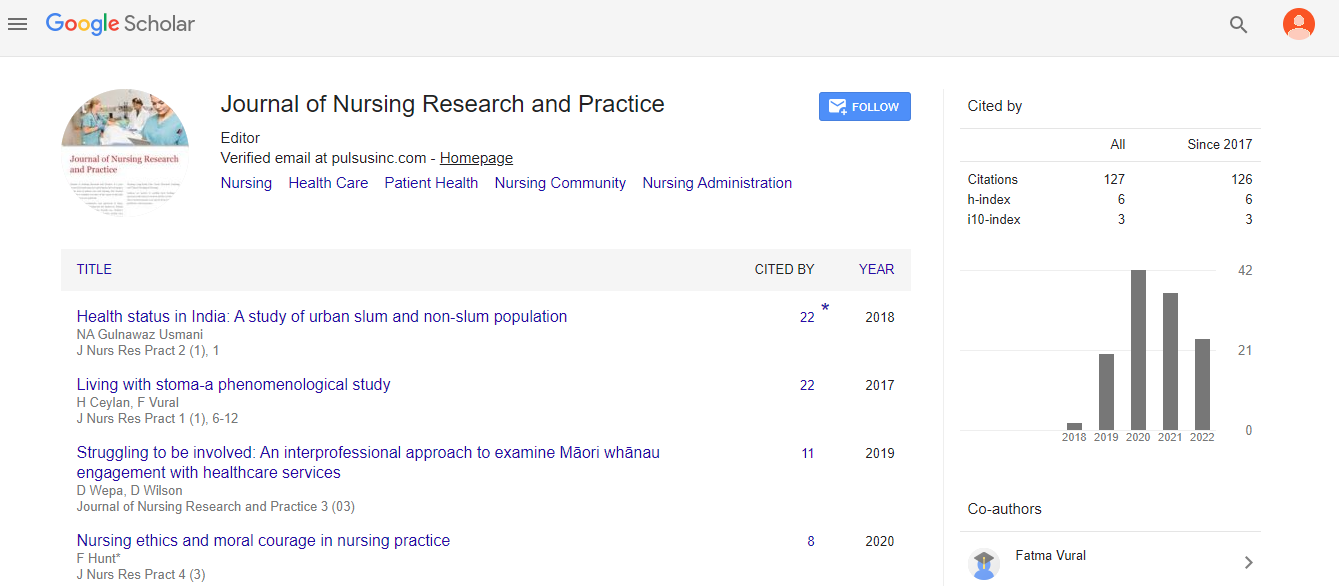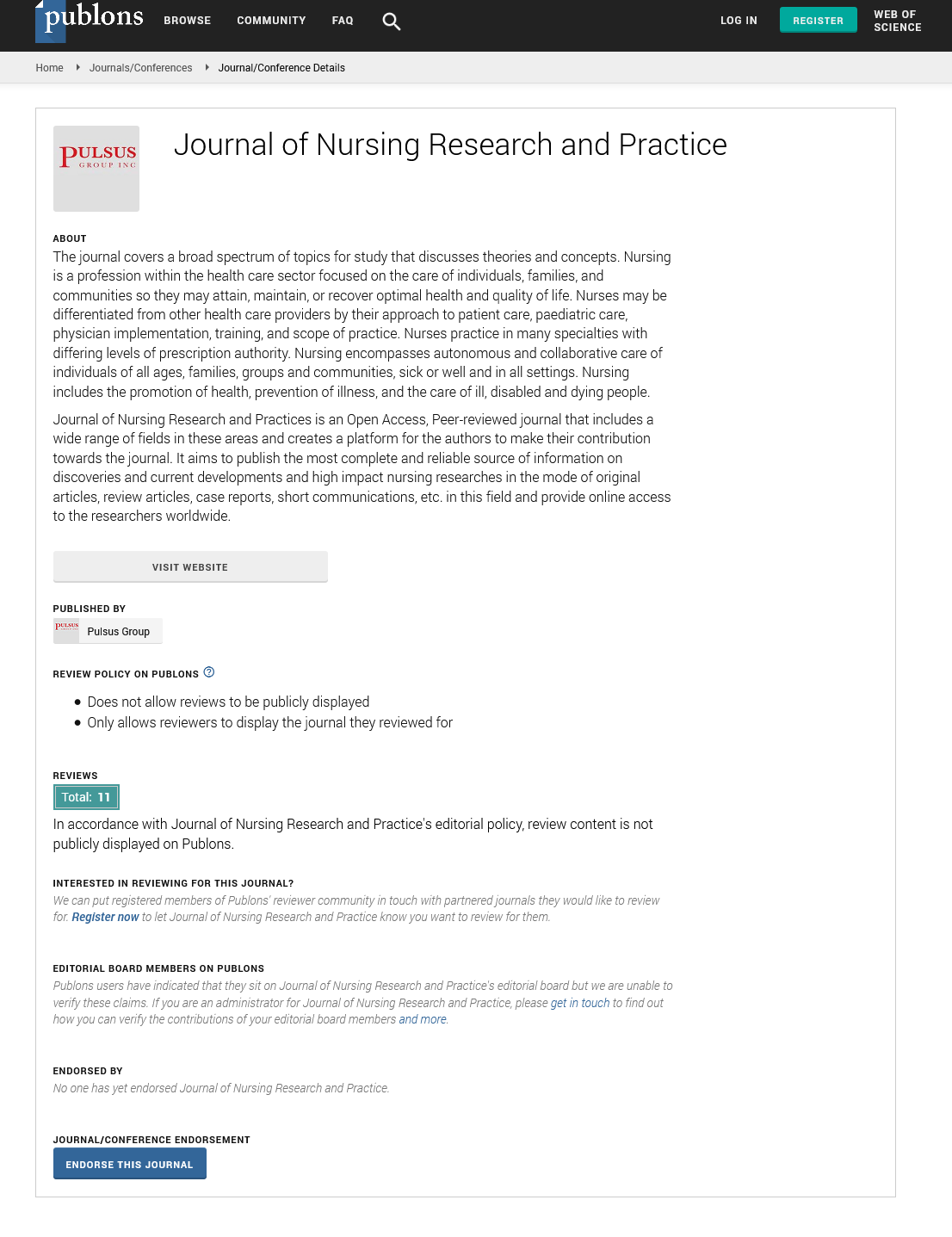
Sign up for email alert when new content gets added: Sign up
Hospice care and nutrition
Joint Webinar on 7th International Conference on Global Healthcare & 4th International Conference on Addiction Research and Therapy
October 08, 2021 | Webinar
Martha De La O Compian
Hospice Vaughan, Canada
ScientificTracks Abstracts: J Nurs Res Pract
Abstract :
Palliative care is about achieving the best quality of life until the end of life. Each person’s, experience of illness, goals of care and approach are unique. Many factors influence the decision to withhold treatment. These discussions and agreements are required between the patient, and health care providers. If patients are not able to participate in these discussions, family members or substitute decision makers are involved on their behalf. Understanding the needs of patients while receiving hospice palliative care is important; particularly during the early stages of it, nutrition support can give residents energy they need and also reduce the risk of opportunistic infections, thereby improving quality of life. Nutritional goals should reflect the other goals of treatment and should be made along with the patient and family. Towards end-of-life people often experience decreased appetite/intake of both food and fluid, weight loss inability to swallow. These are a natural part of the dying process. Comfort means safely providing the person with what they want, when they want it. Encouraging fluids during the dying phase does not usually improve function or change the outcome. If the patient is unable to eat solids, nutritional supplements may be helpful. i.e. boost or ensure. It is important to educate family members about the changes that are happening in the body of their love one as the disease progresses. The need for food or fluids becomes less crucial than managing symptoms. In an study conducted, patients reported appreciation at not being harassed to eat, and family members felt the care respected the autonomy of their relative and the patient’s diet prevented the patient from having to suffer such symptoms as nausea and vomiting that can occur when the body cannot handle food. Family members who adopted a ‘letting nature take its course’ approach to nutritional care believed that declining intake of food and fluid was a normal care at the end of a terminal illness. Interventions designed to augment nutrition or hydration where futile in altering the outcome of the patient’s illness trajectory. Rather that focus their energies engaging on strategies designed to increase food intake, family member engaged in a repertoire of behaviors that consisted of finding other ways to care, such as participating in the patient’s physical care, being present, and protecting the patient from family members who were aggressively trying to get the patient eat. Family members look to health care providers; for information and support in dealing with a family member’s illness. The findings from this study provided members of the health care team with some specific, non-food oriented strategies they can share with families that may diminish family members’ sense of haplessness, and are welcomed by the patient since they honor the patients’ autonomy.
Biography :
Martha De La O Compian graduated from the nursing program at George Brown College in 2009 and has since been registered with the colleague of nurses of Ontario, Canada. As a nurse, she has worked in different fields within the nursing profession. In 2010, she started her work in palliative care at Perram House Hospice for the marginalized population. Most of the care provided included pain and symptom management, emotional support and creating a nurse-client relationship. From the beginning of her nursing career, she found not only her vocation but her true calling: hospice palliative care. Since then, she has increased her knowledge not only medically but also holistically and has taken several certifications; Fundamentals of hospice palliative care, CAPCE, LEAP, hypnosis for pain and symptom management. Currently she works as a staff nurse at Hospice Vaughan and Emily’s House the first palliative care hospice for children in Toronto.





